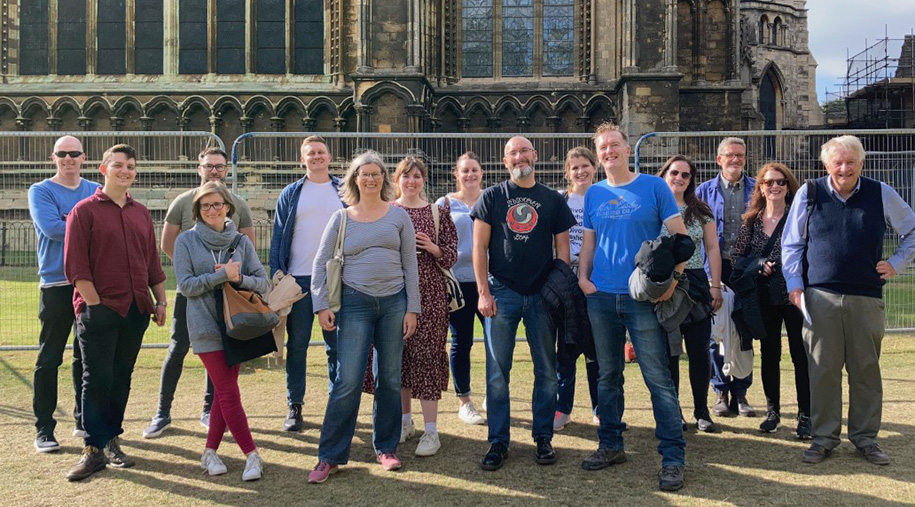Welcome from the British Association for Local History

In recent years, the Historical Association has been involved in a number of Teacher Fellowship schemes. These involve collaborating with an external organisation to support a group of teachers to develop their skills and knowledge and to produce resources. On successful completion the participation earn the title “Teacher Fellow”.
A Local History Teacher Fellowship scheme was first conceived in 2018 following discussions between the Historical Association and the British Association for Local History.
After inevitable delays caused by covid, I am very pleased that the project is now fully underway. It is a joint project for 12 teachers across the primary and secondary phases. It was open to all those with at least 3 years teaching experience and evidence of a commitment to local history. A strong field of applicants led to 6 primary and 6 secondary school teachers being offered places.
The programme consists of:
- A weekend residential conference where the teachers meet with those leading the programme and hear expert inputs and start to formulate ideas
- A series of sessions lasting 8 weeks on line led by two expert leaders. The primary lead is Bev Forrest and the secondary Michael Riley. In these sessions the teachers will examine a series of key articles and other resources and be expected to discuss these via an online forum. Themes have been adapted to fit the needs of primary and secondary teachers but include issues such as the local history environment, connecting local, national and global history, the diversity of history (hidden and untold stories), migration, planning for effective learning in local history, the status of local history, the perceptions of teachers and pupils, where and how they can investigate local history in their locality as well as some particular sources such as oral history. During this time, the teachers will start to formulate ideas for their resources.
- A one day Resource Development Day probably held in London
- Preparation of resources, editing and publication. The teachers will be expected to produce materials up to 5000 words.
There is some flexibility in what the teachers produce. It could involve teaching plans or teaching materials. The teachers are asked to consider their wider applicability so that they can be easily be adapted for use by other teachers. The resources will be published on the websites of both the Historical Association and the British Association for Local History. The teachers may also be asked to contribute to other publications and conferences of both Associations.
A successful residential conference has now taken place held in Lincoln on the 23rd-25th September. It included sessions by Michael Riley on starting points for local history: people and their environments; Bev Forest on “peoples’ stories” focusing particularly on the value of gravestones; a fieldwork session around Lincoln by Tim Lomas and a session on archaeology and local history.
On Saturday Jessamay Carlson talked on using national records to look at local history followed by a visit to the Lincolnshire archives then a session on accessible local history sources for primary and secondary schools by Tim Lomas before breaking into separate primary and secondary teams for a final session. The general feeling was that this was an immensely successful start to the programme. All the participants worked well together and contributed to the weekend’s various events.
During the project, the teachers will be developing their understanding of local history and will be encouraged to reach out and possibly seek guidance on local sources of expertise such as ith archives, libraries, sites, individuals. If there is an HA branch near one of the teachers, they will also be encouraged to make contact.
Tim Lomas September 2021

